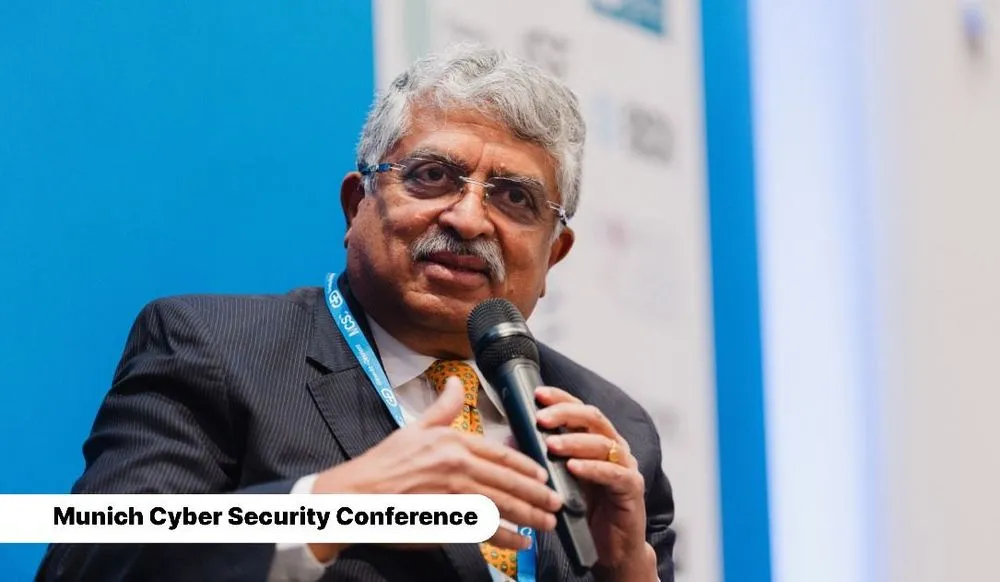India could play a key role in AI development, Infosys co-founder says
MUNICH, Germany — Indian billionaire and chairman of tech giant Infosys Limited Nandan Nilekani said that the country is poised to emerge as one of the biggest users and developers of artificial intelligence as it rapidly adapts to the digital world.
“Every Indian has a digital ID that can be authenticated online and a lot of thought went into how to have an inclusive approach,” said Nilekani at the Munich Cyber Security Conference on Friday. “There are obvious use [AI use] cases for us because we have developed technologies at scale.”
Consider India’s Unified Payments Interface, or UPI. Launched in 2016, UPI is a digital and real-time payment system regulated by the Reserve Bank of India. Today it has some 17 billion transactions a month and 400 million users, Nilekani said. “This has transformed India’s digital payments,” he added. “A lady on the street selling vegetables will take this kind of payment and it provides a record of sales so you can get credit from a bank.”
Nilekani says India has a leg-up on competitors because it has been able to effectively deploy technology across its huge population. AI, he says, will be no different. The Indian government has made clear that it wants to deploy huge amounts of capital and resources to build its own large language models to compete with global firms.
India’s IT minister Ashwini Vaishnaw announced earlier this month that half a dozen startups were working on foundational AI models that could be ready within the year.
The focus on India and AI at the conference comes just a day after India’s Prime Minister Narendra Modi visited President Donald Trump at the White House. Among other things, Modi is trying to head off possible U.S. tariffs against his nation. Trump has groused publicly about the $50 billion trade deficit India has with the U.S. and hinted that India would be on the receiving end of the “reciprocal” tariffs he intends to oppose against U.S. trading partners.
At a news conference in Washington, Trump said that he could not get India to lower tariffs against the United States in his first term, but in his second term things would be different. Now, “we’re just going to say, ‘Whatever you charge, we charge,’” Trump said. “I think that’s fair for the people of the United States.”
Modi, for his part, said he would focus on doubling bilateral trade with the U.S. to $500 billion by 2030 and “concluding very soon a mutually beneficial trade agreement” with the United States.
READ MORE: Munich Cyber Security Conference 2025 Live Updates
Dina Temple-Raston
is the Host and Managing Editor of the Click Here podcast as well as a senior correspondent at Recorded Future News. She previously served on NPR’s Investigations team focusing on breaking news stories and national security, technology, and social justice and hosted and created the award-winning Audible Podcast “What Were You Thinking.”



